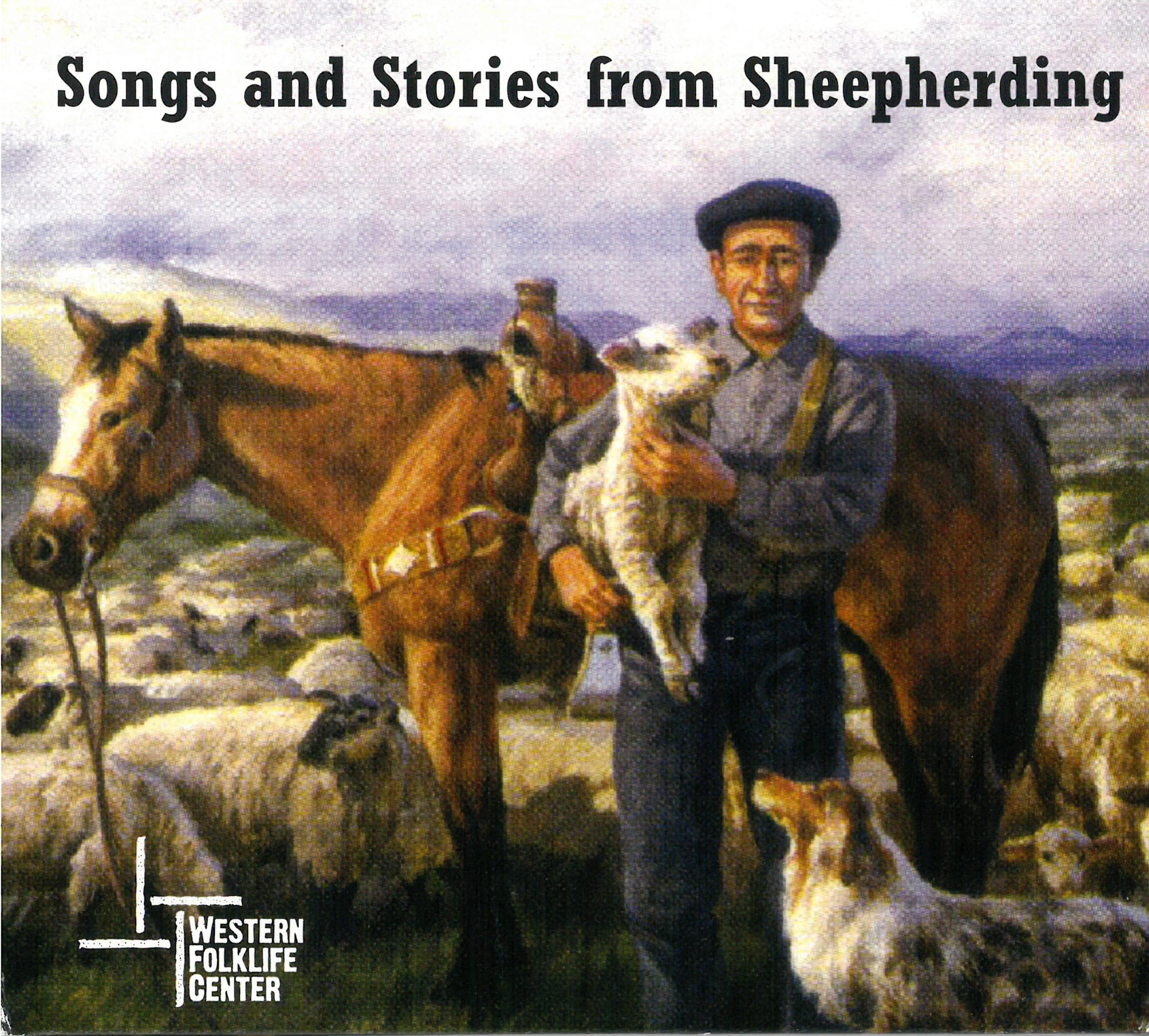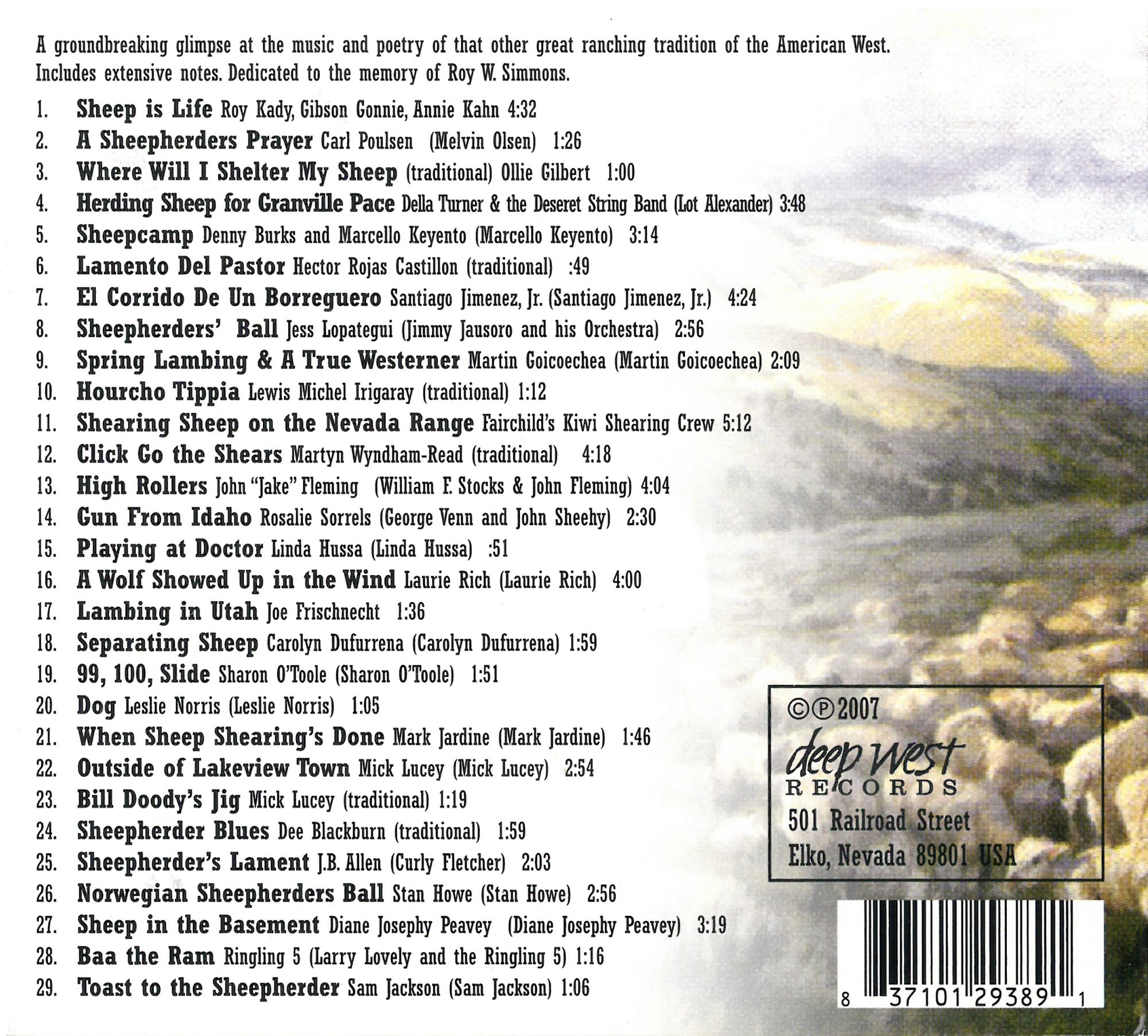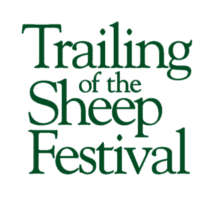The Trailing of the Sheep Festival has enjoyed a long-time partnership and friendship with the Western Folklife Center. We are pleased to share these songs and stories with you. Learn more about the Western Folklife Center.
SONGS AND STORIES FROM SHEEPHERDING


FORWARD
Over the years the Western Folklife Center has paid much attention to the songs, poetry, stories and craft of cattle ranching. As this work became more visible, people from the sheep ranching world often asked, “When are you going to document us?” “When will it be our turn?” The need for this became especially immediate when friends Leonard Coulson and Laurie Rich visited with the staff. Leonard stressed the simple fact that sheepherding and sheep ranching were disappearing. Soon there would be no one left to record and interview. We took this to heart, and with funding from the National Endowment for the Arts and Simmons Family Foundation, embarked on our Sheep Ranching in the American West Project. This has taken us around the inland West to visit many fine hard working folks involved in trying to keep this largely invisible occupation viable. A traveling exhibition and other programs have been produced from this research and we hope to build on this work in the years to come. There are plenty of stories yet to be told.
Meg Glaser, Artistic Director, Western Folklife Center
INTRODUCTION
I have drawers full of CDs, tapes and LPs of cowboy music and poetry. Ask for a cowboy poet in just about any rural community and one will crawl out from under the saddle. But in the past five years, as we’ve been asking for sheepherder poems and songs, we’ve usually only received blank stares. Fortunately, we’ve kept at it and we’re pleased to present the first CD that tries to capture the songs and poetry of folks in the West who tend sheep. I’ve spent much of my life trying to understand western cattle culture and this new immersion in the sheep business has shown how many things cowboys and sheepherders have in common. They share the quest for grassy unpopulated lands of the West. They live out of touch with civilization for long stretches of time. They tend to grazing animals and still do much of the work horseback. But there are big differences too. Sheep need a lot more care than cattle so shepherds need to stay with their herds every day and night of the year. They don’t need much time to rodeo and socialize. Mostly, they are just plain alone. I suspect this is the reason that their poetry tends to be more reflective, more individual, and quieter than that of cowboys. Most cowboys I know identify themselves as just that, cowboys. I know plenty of people whose cowboy-ness is more important to them than race, religion or ethnicity. With sheep folks, ethnicity is a big part of the equation, particularly in the past century when sheepherding has provided a pathway to the American dream. This is true for Scandinavians, Basques, Greeks, Irish, Latin Americans and others. Unfortunately, opportunities are not the same as they used to be. These days, Peruvian and Chilean shepherds come on three-year renewable contracts. In most cases, the money they send back to family makes the difference between poverty and a comfortable life with food on the table and education for the kids. Theirs is a life of sacrifice. Sheep ranching is currently reinventing itself in the United States. Since World War II, wool processing has largely moved out of the country and the lamb on our plates is likely to be imported, changes due to a host of issues including imports, synthetics, governmental regulations, environmentalism, and a domestic work force that can’t handle the hours. If there is a prevailing nostalgia to the music and poems of sheep people, it is because the industry has been kicked in the teeth so many times and so much has been lost. But the poems also reflect a strength of character and commitment to endure. It is all here, ready for your ear.
Hal Cannon, Founding Director, Western Folklife Center
